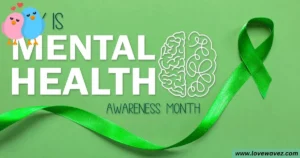“Breaking up with someone you love is never easy, but with understanding and compassion, you can navigate the process with care.”
Breaking up with someone you love is one of the most emotionally challenging experiences anyone can go through. It’s a decision that’s never made lightly, especially when there’s still love involved. However, sometimes relationships run their course, and it’s important to recognize when it’s time to move on, for both your well-being and the other person’s.
This guide will offer heartfelt advice on how to approach breaking up with someone you love, focusing on kindness, clarity, and respect. While the pain of a breakup may not be avoidable, handling it with care can help both parties heal and grow.
1. Understanding Why Breakups Are Necessary
Before ending a relationship, it’s essential to understand why it’s the right choice. This section helps clarify the reasons for breaking up.
- You’ve grown apart over time.
- You realize your values or life goals no longer align.
- Emotional or physical abuse is present in the relationship.
- One partner is holding on to unrealistic expectations.
- You feel more stressed or unhappy than fulfilled.
- There’s a lack of communication or trust.
- You’ve tried counseling or other methods, but things aren’t improving.
- You are in love, but not “in love” anymore.
- You no longer share common interests or activities.
- One person is unwilling to compromise or grow.
- You’ve experienced infidelity, and trust can’t be repaired.
- You’ve reached different stages in life, and the relationship no longer fits.
- Your mental or physical health is suffering due to the relationship.

- You’ve realized you need personal growth outside of the relationship.
- Your partner is not supportive of your goals or dreams.
- The relationship has become toxic and unhealthy.
- You no longer feel safe or respected in the relationship.
- One partner is too dependent on the other.
- Your emotional needs are not being met.
- You’re staying together out of obligation rather than love.
2. How to Approach the Conversation
The conversation itself is crucial. This section will cover how to approach the breakup talk with compassion and understanding.
- Choose a private and comfortable setting for the conversation.
- Be honest, but gentle with your words.
- Avoid blaming or criticizing your partner.
- Focus on your feelings and needs rather than their shortcomings.
- Be clear about your decision to break up.
- Avoid giving false hope or mixed signals.
- Make sure to be empathetic to their feelings.
- Be prepared for emotional reactions and give space if needed.
- Avoid breaking up in the heat of an argument or while angry.
- Stay calm and composed, even if the conversation gets emotional.
- Acknowledge the good times and express gratitude for the relationship.
- Reassure them that it’s not about them as a person, but about the relationship dynamic.
- Give them time to process the information.
- Don’t rush the conversation—let it unfold naturally.
- Avoid saying things like “It’s not you, it’s me” without further explanation.
- Be honest about the reasons, but don’t go into unnecessary detail.
- If they ask questions, answer honestly but respectfully.
- Be clear about whether you want to remain friends afterward or not.
- Respect their emotional space during and after the conversation.
- Recognize that the breakup may be a shock, so allow for processing time.
3. Handling Emotional Reactions
Both you and your partner will likely experience intense emotions. This section covers how to manage these reactions.
- Expect feelings of sadness, anger, confusion, and relief.
- Allow yourself to grieve, even if you made the decision.
- Encourage your partner to express their feelings, but set boundaries if needed.
- Don’t try to “fix” their emotions, simply listen.
- Be mindful of your partner’s emotional needs, but stay firm in your decision.
- Understand that both of you may experience a range of emotions in the aftermath.
- It’s okay to cry, but avoid guilt-tripping yourself afterward.
- Avoid minimizing your partner’s pain or dismissing their feelings.
- Respect their need for time and space to process.
- Recognize that emotional reactions can vary from person to person.
- Give them time to express their emotions without rushing them.
- If emotions become too overwhelming, suggest taking a break before continuing the conversation.
- After the breakup, allow yourself to feel sad without feeling guilty for ending the relationship.
- Offer support, but don’t promise you’ll be there as a partner if you’re not.
- Expect to feel some level of guilt, but don’t let it stop you from moving forward.
- Keep in mind that both of you deserve to heal.
- Stay respectful, even if your partner’s reaction is angry or hurtful.

- Don’t take their anger or sadness personally—it’s part of the healing process.
- Be patient as they process everything.
- Allow for time and space after the breakup for emotional healing.
4. Navigating Post-Breakup Boundaries
Setting boundaries after the breakup is essential for healing. This section covers how to maintain boundaries.
- Establish whether you’ll have contact afterward, or if you need a clean break.
- Avoid late-night texts or calls, as this can confuse the situation.
- Don’t engage in emotional or physical intimacy post-breakup.
- Be clear about not engaging in situations where you might fall back into old habits.
- Respect each other’s privacy by not checking each other’s social media.
- If you’re still in mutual friendships, be respectful of the situation.
- Limit contact, especially in the early stages of the breakup.
- Set clear rules if you share living space or belongings.
- Be honest about whether you can remain friends in the future or not.
- Take time to reflect on what you both need in the post-breakup period.
- Avoid situations where one partner might be seeking comfort or closure.
- Recognize that some relationships might not be able to transition into friendships right away.
- Don’t text or contact them to “check in” unless you’ve both agreed to stay in touch.
- Don’t use the breakup to manipulate emotions or guilt-trip the other person.
- Respect their space and give them the time they need.
- Be clear on your intentions, whether it’s to stay in touch or cut contact completely.
- Avoid comparing future relationships with your past one.
- Make sure to talk about any shared responsibilities, such as finances or pets.
- Avoid using mutual friends to pass messages or check on them.
- Stay firm in your boundaries, especially if they try to convince you to reconsider.
Inspiring Celebration of Life Quotes to Honor Every Moment
5. Healing and Moving On
Healing after a breakup is an essential part of the process. This section will help you focus on recovery and moving forward.
- Allow yourself to mourn the end of the relationship.
- Spend time focusing on your personal growth.
- Reconnect with friends and family for support.
- Focus on self-care—both physical and emotional.
- Take time to rediscover things you enjoy doing solo.
- Avoid rushing into another relationship right away.
- Reflect on what you’ve learned from the relationship.
- Don’t dwell on regrets—accept that things ended for a reason.
- Embrace the opportunity to reinvent yourself.
- Start new hobbies or revisit old ones that bring joy.
- Journal your feelings to help process the breakup.
- Practice mindfulness or meditation to focus on healing.
- Don’t isolate yourself—spend time with people who make you feel good.
- Seek professional help if you need support navigating the emotional aftermath.
- Celebrate your personal victories, no matter how small.
- Recognize that healing takes time and that it’s okay to feel sad.
- Don’t rush into finding closure—sometimes it comes naturally over time.
- Reflect on the positives of the relationship, but understand it was time to move on.
- Recognize that you are stronger than you think, and you will heal.
- Be patient with yourself as you move through the stages of healing.
6. Moving Forward with Compassion
When breaking up with someone you love, you must also embrace compassion. This section emphasizes moving on with kindness.
- Acknowledge the good in your partner and the relationship.
- Be kind to yourself and avoid self-blame.
- Offer heartfelt words of closure, if appropriate.
- Respect their emotional space even after the breakup.
- Remain empathetic to the grief both of you are experiencing.
- Take time to forgive yourself and your partner for any missteps.
- Understand that both of you deserve happiness and growth.
- Avoid placing blame—recognize that relationships sometimes end naturally.
- Let go of any lingering resentment or anger.
- Accept that this chapter of your life is over.
- Cherish the lessons learned from the relationship.
- Be open to the possibility of personal transformation.
- Approach new relationships with compassion and understanding.
- Don’t regret the love you shared, even if the relationship ended.
- Practice forgiveness—both for yourself and for your ex.

- Hold on to the positive memories, while letting go of the pain.
- Acknowledge that both of you are entitled to move forward in different directions.
- Focus on your own happiness as part of the healing process.
- Support each other’s future success, even if from a distance.
- Respect the journey each of you will take after the breakup.
7. Learning from the Experience
Every breakup provides valuable lessons that can shape your future. This section focuses on how to learn from the experience.
- Reflect on what worked and what didn’t in the relationship.
- Recognize patterns in your past relationships to help improve future ones.
- Identify what you need in a future partner.
- Learn how to set better boundaries going forward.
- Understand your emotional triggers and responses.
- Practice better communication in future relationships.
- Recognize areas of personal growth and improvement.
- Reflect on the qualities you want in a future relationship.
- Acknowledge any mistakes made and learn from them.
- Take responsibility for your actions without self-judgment.
- Don’t let past experiences dictate your future happiness.
- Use the breakup as a stepping stone toward a better version of yourself.
- Be open to love again when the time feels right.
- Learn how to balance love and independence.
- Understand that both people in a relationship have room for growth.
- Embrace change as a natural part of life.
- Be kinder and more compassionate to others in future relationships.
- Focus on your personal goals and values.
- Recognize that love can evolve, and relationships can teach us many lessons.
- Trust the process and know that healing takes time.
Conclusion
Breaking up with someone you love is never easy, but it’s sometimes necessary for growth and self-care. By approaching the breakup with honesty, empathy, and respect, you can help both yourself and your partner heal. Although the process can be painful, it also opens up opportunities for personal growth and a healthier future.
Moving forward with compassion, setting healthy boundaries, and learning from the experience can help both parties find happiness and peace in the end.

Hi! I’m Ethan Matthews, your go-to expert on navigating the complexities of modern love and dating. Let’s dive deep into the heart of relationships together!












